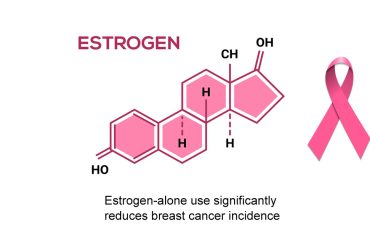
A recent study conducted in USA on the use of hormonal drugs for the management of menopausal symptoms came to an important conclusion:
There is no reason to be afraid of using hormonal drugs to manage menopause symptoms.
Menopause is a normal process in a woman’s life in which the body stops producing certain hormones, such as oestrogen and progesterone. This transition may be accompanied by symptoms such as hot flushes, night sweats, mood changes, sleep difficulties and behavioural changes.
For many women, managing these symptoms is a major challenge, and many seek the help of hormone replacement therapy. However, resistance to the use of these medications is widespread, as there have been concerns about potential health risks.
The new study, however, appears to dispel these concerns. After following thousands of women who were treated for long periods of time, the researchers found no increase in the risk of cardiovascular disease or breast cancer. This finding is important information for women facing menopause and seeking alternative treatments.
For women who are significantly affected by symptoms, particularly in the workplace, hormone therapy is the most effective treatment.
Here are the findings from the long-term follow-up:
- The researchers found that hormone therapy did not increase mortality rates (deaths from all causes) in any age group, compared with women of similar age taking a placebo.
- There was no statistically significant difference in heart risk between hormone users and non-users. When the study was stopped in 2002, the organisers reported a 29% increase in heart risk among women taking hormone drugs.
- The risk of stroke among young hormone users was relatively low – less than one extra incident per 1,000 women using estrogen-progesterone therapy and no excess risk with estrogen alone.
- The different forms of hormone therapy (estrogen-progesterone combination and estrogen alone) had opposite effects on breast cancer risk. Women who used oestrogen alone (which is only allowed in women who have had a hysterectomy) saw a 20% reduction in breast cancer risk during the follow-up period.
- The risk of bone fracture among hormone users was 33% lower in all age groups compared to placebo.
Of course, as with any treatment, there are potential risks and side effects to consider. It is important to discuss with your doctor the benefits and risks of hormone therapy as well as other alternative treatments that may be appropriate for you.
Ultimately, this study sheds new light on the use of hormonal medications for menopause and offers hope for women facing this vital phase of their lives.
Call us and make an appointment. We are here to help you!



